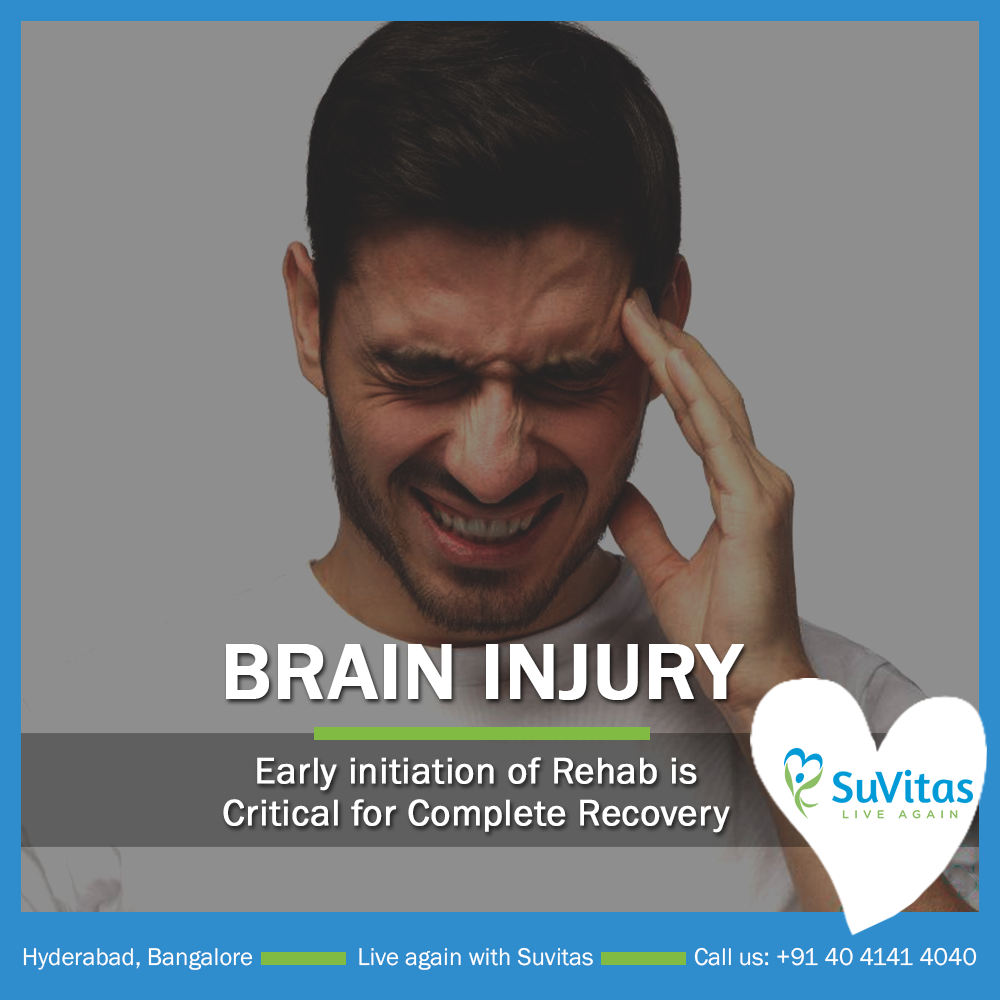“What doesn’t kill you can only make you stronger.” Brain injury doesn’t mean the end of a life. A severe traumatic brain injury can make someone land into coma. Common cause are Raod Traffic Injuries, falls, assaults, sports injuries etc. This results in either “closed head injury” (brain is damaged without breaking the skull) or “penetrating head injury” (an object enters the brain by breaking through the skull). While a complete treatment for brain injury does not have a linear pattern, early initiation of specialized rehabilitation can result in significant improvement from current status and alert about future problems.
The need of rehabilitation:
After surviving the injury, a patient is left with several physical and emotional challenges like difficulty to recognize, speak, swallow, headaches, dizziness, memory problems etc. If these issues are left unattended, it can lead to the development of number of neurodegenerative and neuroendocrine disorders. Both the patient and his caregivers are challenged with several new limitations every day that physical, emotional, and social support becomes a necessity. The earlier the patient learns to adapt to the changes and cope; he will have an enhanced road to recovery with full potential.
Preparing for quality rehabilitation care:
Once the patient starts showing signs of medical stability in Intensive Care Units, he should be prepared to be transferred to a specialized inpatient rehabilitation setting where individualized rehabilitation programmes are designed in accordance with the strengths and capabilities of the patient to recover and compensate for lost skills. Intensive rehabilitation interventions begin with baseline assessment by multidisciplinary rehabilitation team that comprises of doctors, nurses, physiotherapist, speech therapist, occupational therapist, respiratory therapist, dietician and psychologist – counsellor. Each one would propose a care plan with clear understanding of therapies planned and goals against timelines. Several therapies like multisensory simulation might be provided to the patient at the intensive care unit, when he is in coma. The programme is constantly monitored and any deviations of projected path are detected early and care plan shall be modified to adapt to the patient’s changing needs. An ideal rehabilitation program for brain injury must be collaborated by a multidisciplinary team of rehabilitation specialists so that the overall recovery of the patient is ensured.
Where Recovery Happens is Key:
Environment plays a crucial role in promoting neurological recovery. Our brain is designed to represent function. After an injury, the brain needs to be trained to restructure itself to attain cognitive and functional recovery. Functional recovery can be aided by the transfer of functions from a damaged part of the brain to an undamaged part. During the recovery phase, reinforcement paradigms like stimuli which encourage adaptive or pro-social functions must be presented to the brain. A structured rehabilitation programme for brain injury is administered in a well-planned environment that is equipped with appropriate tools and well-trained personnel. Inpatient facility will have an advantage of having all the departments under one roof – medicine, nursing, physiotherapy, speech-swallow therapy, respiratory therapy, psychology, diet and nutrition. State of the art equipment is ensured for the therapists to put the best possible efforts. A comfortable home like environment can make patients and families adhere to proposed care plan and sustain therapy for better and longer results.
Personalization is Critical:
Not every case is same. Each one would have a different status and prognosis depending on severity of injury, site of injury and vulnerability of the individual. While principles of rehabilitation approach is standard, each case has to be dealt with utmost uniqueness. Individuals personality, familiarity, family and friends support plays a pivotal role in determining outcomes of rehabilitation interventions. Family members and friends can play a very critical role in adherence and engagement of physiotherapy sessions, cognitive behavior therapy (CBT) sessions, Speech therapy & swallow therapy.
Prevention is better:
While survivor of brain injury needs a best possible rehabilitation effort, it is very critical to ensure that causes of the injury are analyzed well. It is imperative to identify the preventable factors that lead to the injury. Some of them might be reasons at an individual level and few can be beyond individuals and might need a deep insights and decisions at policy level. If “prevention is better than cure” applies anywhere, this could be amongst the top areas to enforce it.

